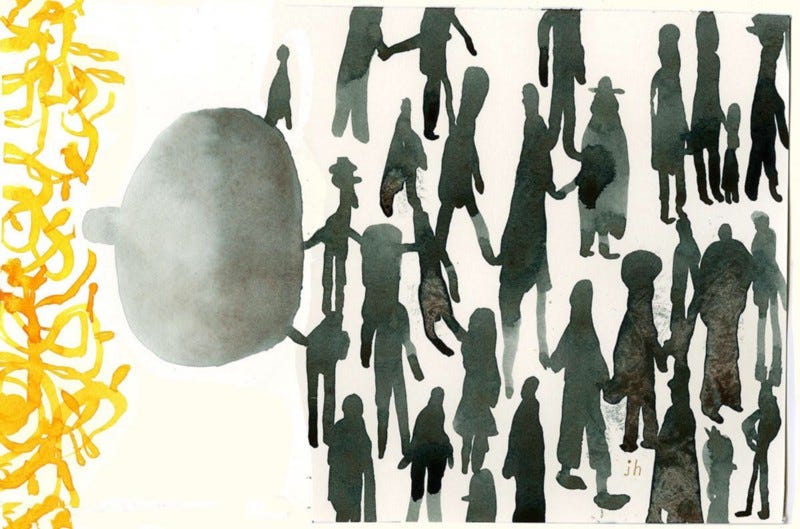Opposite Reflections
I woke up this morning to the sound of house finches’ rolling songs. The sun was out and it was warm, but not too warm. I made my coffee…
I woke up this morning to the sound of house finches’ rolling songs. The sun was out and it was warm, but not too warm. I made my coffee, walked out there in the old torn, but usable, camping chair my Dad keeps out in the yard, and sat in the sun. I can hear the chipping of titmice, kinglets, chickadees, the buzzing of hummingbirds, and the heaving slapping wings of, I think, band-tailed pigeons. And as I got a little too hot in the sun, a breeze came along to cool me ever so slightly, to not take away my heat, but to ease the power of the sun, leaving me in the place where Goldilocks sat, feeling just damn right.
And isn’t it so idealized, this moment, lounging in the sun? It is something we all aspire to be, to do. To be of the leisure class. To lounge all day, thinking only of small things, little neighborhood molehills that we may choose to make mountains out of, that is only if we wish. We all want that moment of peace. And many of us can attempt to have it (but only slightly. It’s hard to run away from the thought of being trapped). Yet isn’t it so odd and terrifying, surrounded by growing cases of a disease we know little of, as it takes the lives of many? But we’re lucky here, in Marin, and in other well off places around the world This luck we have (but let’s call it privilege) is something that lays on the back of my mind as I write these entries. That I am white, that I live in the whitest part of the Bay Area which just so happens to have some of the best air quality in the country. Our number of deaths and infections are very low here, a combination of that clear fresh openspace air, and a public that (mostly) can afford to listen to and comply with much of the social distancing required to flatten the rate of infections in Marin.
But then there is Louisiana, home to 17 oil refineries, the spillway of the entire Mississippi River, predominantly black, and, in a stretch of 80 miles of road called “Cancer Alley” has the highest per capita cancer death rate in the United States. And New Orleans is being hit hard by this. Yet across the country, many poorer communities, most of whom are predominantly black or latino, are being hit the hardest by Covid-19, either due to the rates of pollution in the atmosphere (and don’t forget this is a respiratory illness), or their jobs being deemed essential, and therefore constantly be put at risk to the disease.
It’s difficult to know all this and believe that it’s just some unintentional thing. Because this is how racism works. We are killing people in this crisis (and outside of this crisis) due to an arbitrary aspect of how a person looks. And this crisis just showcases how embedded racism is within the system of our society. The whiter areas, like where I live, the safer, and the “luckier” you are. And just the opposite is often true for communities that are predominantly black or latino.
And as I sit here in this lovely place, afforded so much due to my skin, my health, the access to openspace, the access to a little garden to sit in the sun, the good air quality, I can’t help but be mad to think that, in some not small way, my skin tone, my family’s arbitrary fairness, brought us to all this luck, as fellow citizens die broke, unable to afford to go to the hospital, due to the same arbitrary marker that forced them to live in such poor conditions. I’m getting sick of this playing out as a single truth in American history and society as a whole. Something’s got to give.




